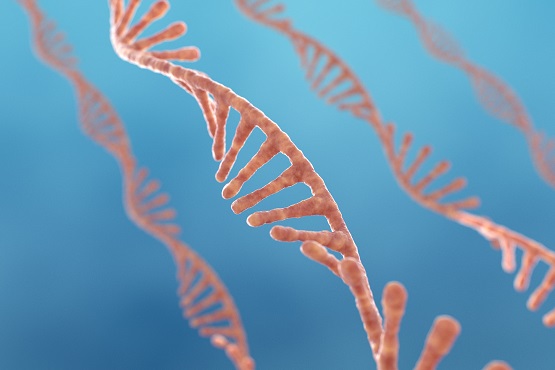Locally developed mRNA vaccines and therapeutics to fight disease

Researchers from the University of Melbourne and Monash University have received $5.4 million from the Victorian Government to establish a hub which will develop next-generation mRNA vaccines and therapeutics to fight diseases.
The Victorian mRNA Innovation Hub (VMIH) will work to advance the technologies involved in mRNA vaccines and therapeutics production that proved pivotal in responding to the COVID-19 pandemic.
VMIH will also enable the next generation of mRNA researchers to learn from some of the world’s best scientists tackling a range of diseases. The funding is part of the State Government’s mRNA Victoria Activation Program initiative
mRNA experts from the University of Melbourne’s Faculty of Engineering and Information Technology, the Doherty Institute, Monash Institute of Pharmaceutical Sciences (MIPS) and the Monash Biomedicine Discovery Institute (BDI) will be part of the VMIH.
Chair of the VMIH Management Committee and Director of MIPS Monash University Professor Chris Porter said that Victoria’s mRNA ecosystem is on the cusp of significant opportunity but urgently needs to build a critical mass of highly trained scientists to drive domestic mRNA innovation and support this national imperative.
“We are lucky to have a pool of exceptional talent in mRNA research right here in Victoria, however until now there has been no central hub bringing together the cross-disciplinary skills in molecular biology, mRNA biology, drug delivery and pharmaceutical sciences to drive this expansion,” said Professor Porter.
“The major aim of The Victorian mRNA Innovation Hub is to increase the efficiency of mRNA manufacture and delivery, to develop unencumbered IP to support the development of Australian mRNA products and to train and upskill a community of mRNA scientists to drive Victorian mRNA innovation and create a skilled workforce.”
University of Melbourne Professor Frank Caruso, leader of one of the VMIH’s primary nodes said VMIH would “capitalise on skills and expertise across collaborative research programs in mRNA biology, molecular assembly and nanoengineered delivery technologies at the University of Melbourne and Monash University, to drive cutting edge outcomes in mRNA research and cementing Victoria as a centre of innovation.”
mRNA technology has most recently been applied successfully to vaccines – including Australia’s first locally produced COVID-19 vaccine from MIPS and undergoing clinical trials in partnership with the Doherty Institute – and has potential application across a range of diseases and conditions including HIV, muscular dystrophy, Alzheimer’s disease and cancer.
VMIH is made up of four primary nodes:
Node 1: Led by Associate Professor Traude Beilharz, Monash (BDI)
The BDI Node houses arguably the highest concentration of RNA researchers in Australia. The scientists have significant experience in mRNA stability; in vitro synthesis and purification of RNA; transcription regulation, and complex RNA design. Their research will lead to the generation of new molecular RNA tools and novel approaches to generate improved mRNA therapeutics.
Node 2: Led by Professor Damian Purcell, Doherty Institute
Professor Purcell, has more than 30 years’ experience with RNA-research spanning mRNA modification, structure, translation regulation, stability, and viral packaging. This Node will bring together expertise in high containment, in vitro cultivation (SARS-CoV-2, influenza, other), animal infection models, analysis of viral RNA elements, testing of antiviral efficacy and assessment of innate and adaptive antibody and cellular immune responses.
Node 3: Led by Professor Colin Pouton, Monash (MIPS)
Professor Pouton has over 30 years’ experience in drug and nucleic acid delivery and has Australia’s most well-developed mRNA vaccine program. This Node brings together broad experience in parenteral and mucosal drug delivery, targeting to immune cells within the lymph and immune system, pharmacokinetics and drug disposition and expertise in vaccine and drug development. In collaboration with the other nodes, MIPS scientists will develop new delivery technologies to promote the utility of next generation mRNA therapeutics.
Node 4: Led by Professor Frank Caruso, University of Melbourne Faculty of Engineering and Information Technology
The Caruso Nanoengineering Group is internationally renowned for nanoscience and nanofabrication and is exceptionally well resourced to evaluate the critical interactions that occur at the nanobio interface between nanoparticles and target cells. This Node will combine expertise in delivery engineering with experience in nanomaterial assembly, nanoengineering and gene delivery, along with the development of prototype technologies to investigate novel mRNA delivery systems.